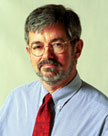 I am leaving Puerto Rico, after 10 fruitful, fascinating and occasionally exasperating years. It is a good occasion for reminiscing and final observations. I am leaving Puerto Rico, after 10 fruitful, fascinating and occasionally exasperating years. It is a good occasion for reminiscing and final observations.
Herewith, a few.
When I arrived in March of 1991 Puerto Rico was in the throes of a terrible crime wave. Homicides were skyrocketing, 80 vehicles were stolen every day, and there were an average 25 carjackings a day. No one was spared, including Puerto Rico’s most prominent families. Gangs of heavily armed and hooded men were barging into San Juan’s fanciest restaurants, forcing the patrons to the floor, and robbing and terrorizing them with impunity.
The power and reach of Puerto Rico’s drug trafficking organizations was growing exponentially. Cops were cowering in their stations under sniper fire. In these last days of former Gov. Rafael Hernández Colón, Puerto Rico was sliding into anarchy.
My first week in Puerto Rico, the hubcaps were stolen from my car. It was only then that I noticed that most vehicles in Puerto Rico don’t have hubcaps.
My first month in Puerto Rico, I discovered a burglar in my living room. He had climbed into an unlocked 2nd floor patio door. It was then that I understood why most Puerto Ricans locked themselves in their homes and apartments every night behind iron bars.
There was social chaos. The schools were crumbling, teachers didn’t show up for work, the public schools drop-out rate was 49 percent. Roads, highways and bridges suffered from decades of neglect, while a crushing number of vehicles created huge traffic jams, trapping tens of thousands of commuters.
The island’s reservoirs hadn’t been dredged in decades, so that back-to-back droughts in 1992 and 1993 forced water rationing on more than 1 million people. In my neighborhood in Old San Juan, water was supposed to come on once every 24 hours, and it did -- but mockingly, for just a few drops and a few minutes at a time.
Telephone service was Third World at best, and it took months, often six or more, to get a line installed or a repair order filled. The government-owned Puerto Rico Telephone Company was bloated with thousands of political appointees and was extremely costly to residential and business users alike. And while Puerto Rico drifted in a deep malaise,
Hernández Colón’s government occupied itself with politicking on the status issue and in passing the infamous Spanish-only law, designed to drive a deep wedge between Puerto Rico and the United States.
That was the shape Puerto Rico was in when I arrived here. And yet, in a tribute to the ingenuity and resiliency of the people, Puerto Rico has pulled itself out of the worst of the crises that seemed to be sinking the island.
What happened was a middle class revolt. The middle class, particularly professionals, elected the reform-minded pediatric surgeon Pedro Rosselló in 1992, and on taking office he initiated a broad swath of reforms. Rosselló decentralized education, creating community schools with parental involvement. He sold off the telephone company and dumped other government-owned businesses including hotels, the sugar corporation, and the shipping company. Rosselló privatized the jails, the health care system and public housing and cut taxes.
The government dredged the reservoirs and built the $600 million Super Aqueduct to stabilize the metropolitan area’s water supply. Water service now is dramatically better.
Rosselló’s engineers built new highways and overpasses and widened the lanes and installed the island’s first reversible lanes on the main expressway into San Juan. Most significantly, they broke ground on a $1.2 billion surface rail system to further ease traffic snarls.
Rosselló’s single largest achievement, however, was that he reclaimed society from the criminals. With his "firm hand" policy, Rosselló sent the National Guard into the island’s violence-ridden housing projects, jailed thousands of drug dealers and recruited and trained 8,000 more police officers.
The policy paid off. Homicides, which had peaked at more than 900 a year during Hernández Colón’s administration, dropped by more than 300. All major crimes took steep drops. Cops were everywhere, and people went out at night again.
The quality of life is better in Puerto Rico today than it was 10 years ago. Rosselló was not perfect. His administration was weighed down by corruption, he passed an ill-advised public employees unionization law, many of his programs were too costly, valuable time was wasted on status politics and Rosselló’s school vouchers program was struck down as unconstitutional. For the accomplishments of the last decade, however, Rosselló deserves much but not all of the credit. The people of Puerto Rico rallied behind him, and did the work. It is not an overstatement to call it a successful survival reflex.
This is Robert Becker’s final Puerto Rico Report column. After more than ten years he is leaving Puerto Rico to become a bureau chief with The Sarasota Herald-Tribune.
We wish him well in his new position and look forward to his future contributions to the Puerto Rico Herald.
He can be reached directly at: dkarle@coqui.net |

